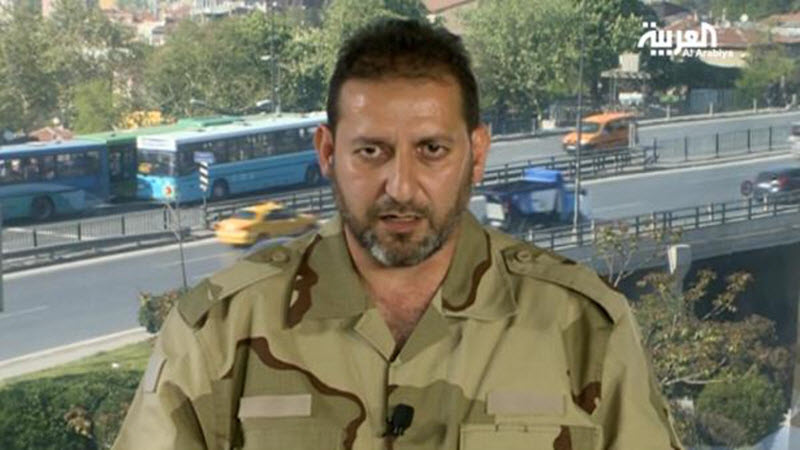
by Armin Baldwin
The leading commanders of the Free Syrian Army (FSA) were confident that they would soon see the end of the war during the summer of 2012. Their successes on the battlefield saw large portion of the country come into rebel control. They were optimistic that forces loyal to Assad would not be able to withstand the growing uprising.
“There was widespread defection among the Syrian officer corps, especially in the middle ranks, such as lieutenants and colonels, who formed the backbone of the Syrian army,” Fateh Hassoun, who defected from the Syrian army and commanded FSA troops in Homs at the time, recalled. He also explained that Syrian forces had been concentrated in the southwest of the country, in a posture aimed at deterring the threat from Israel.
However, the FSA’a success was seen by Syria’s close allies, Iran and the Lebanese armed group, Hezbollah, who both increased their involvement in the conflict, and stemmed the rate of rebel advances. Regarding this, Hassoun said, “After the Iranian and Hezbollah intervention, the regime started making gains on the ground, especially in the central regions of Homs and Hama.” He added, “Despite the Iranian intervention, the regime and its allies could not win the war, but they were successful in protecting the capital, Damascus, by besieging and keeping the opposition on the periphery of the city.”
Another FSA official, Bashar al-Zoubi, who commands the rebel group’s southern front claimed the Syrian Army was only operating at a quarter of its full strength until the Iranians intervened. He alleged, “The Syrian army had all but collapsed and was operating at about 20 to 25 percent of its previous strength when the Iranians came and brought with them Hezbollah, and Iraqi and Afghan militias, who did most of the fighting on behalf of the Syrian army.” He said he believed the opposition would have won the war by early 2013 were it not for Tehran’s involvement.
Iran has striven to ensure that its involvement in the Syrian conflict is not viewed as direct participation, and so its policy has primarily focused on the deployment of troops to the country as ‘military advisers’, and the training and transporting Shia militias into the state.
The number of Afghan Shia fighters, who form the Fatemiyon division, may be as high as 20,000, according to Iranian media outlets. They fight alongside volunteers from Iran itself, Pakistan, and Iraq. They are drawn by such motivations as the salary, or the idea of defending the Sayeda Zainab shrine in Damascus, one of the most sacred religious sites for Shia Muslims.
Additionally, Iran has played an important role in training Syrian militias. Professor Scott Lucas, a University of Birmingham academic and founder of the EA WorldView website, said, “A big step came in autumn 2012 with the Iranian commitment to build up and lead the National Defence Forces (NDF) militias to cover the depleted Syrian Army.”
“With a strength at their peak of 90,000 fighters, the NDF militias are a pro-government paramilitary formation, which have been credited with turning the tide of the war,” wrote Ali Younes & Shafik Mandhai in an article for Al-Jazeera. They added, “Iran has justified its involvement on the pretext of fighting what they describe as ‘takfiri’ groups, such as the Islamic State of Iraq and the Levant (ISIL) group, but the militias they control or have trained have been directly involved in fighting against rebel groups, including those loyal to the FSA.”
Professor Lucas explained that by prioritizing its own militias over the Syrian army, Iran showed its lack of faith in the Syrian army leadership and its own socioeconomic ambitions in the country. “Iranian commanders never trusted – and still don’t trust – the effectiveness of regular Syrian units,” he said, adding, “Iran wanted to have control of political-economic-military context, [as in] its now de facto control of parts of southern Damascus and its ownership of Syrian assets, such as phosphate mines.”
Lucas also pointed out that Iran’s expanding influence would be cause for concern among the government leadership, but since its survival depends on Iran, he explained, “Publicly, of course, the Assad government won’t really express its anxiety about the expanding Iranian influence. For example, if you take General Bakri’s visit to Damascus this past week, all the statements were about Iranian and Syrian government cooperation against takfiri terrorism and Israel.”
Lucas concluded, “The problem is that the Iranians have gotten an IOU from the regime, in that they basically saved it … so it’s going to be very difficult for the Assad regime to walk away from that.”







